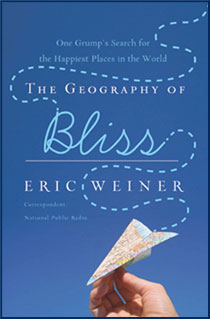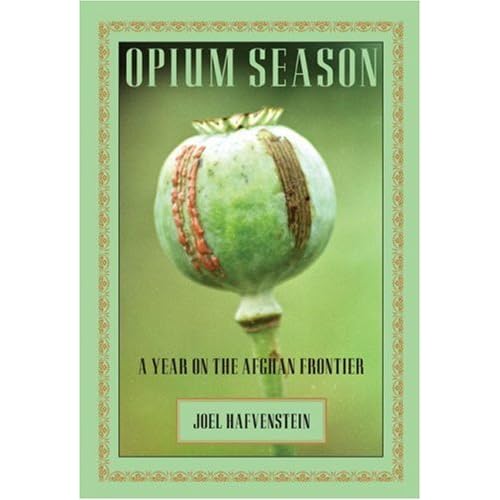-Marc
First, thanks so much for all the support. In my next post I will respond directly to the thoughts and ideas you all have shared.
I don’t know if you all heard Maryland Morning with Sheilah Kast today. They interviewed me and then they spoke with Tony Brandon, who is president of the station and who led the effort to get of me. Quickly, I want set the record straight on one thing that he said which was a bald-faced lie.
He has constantly attempted diminish what I and our listeners did six years ago in raising funds to purchase what was then WJHU. He said on the air that we raised only 5% of the $5 million to purchase the station. I have all the records, and the old bank statements. We raised close to $750,000 after I send an e-mail asking listeners to support our effort to buy the station. $400,000 of that came in huge contributions of six figure. Four people gave $25,000 and numbers more $15, $10 and $5 thousand dollar contributions. Hundreds more gave everything from$5.00 to $1000.00. None of them (those who gave $25 thousand and less) were ever acknowledged or thanked by the station.
At any rate, in many ways this is beside the point. The money is not important. It is more important to them than to me. But it is important that the efforts of the listeners and early supporters not be diminished.
What is important is the future of public radio. What is important is that this is about integrity of public radio. It is about the corporatization of WYPR and of public radio.
When I raised the money from listeners I said I would return every dime to them if we did not buy the station. You trusted me. I met some people, like Tony Brandon, who I thought would be partners to build our community station. Instead it was hijacked.
There is a history here that I will relate to all of you over the next few days. Right now I have to go off to a lunch meeting so I can continue to ensure coverage of our world in print, audio and video on our blog and the Center for Emerging Media website.
So, I will share with you all our future plans, and my perspective on the history of the past six years at WYPR very soon.
Thank you all so much. I will back at you a bit after lunch and for the next few days.
Take care.. and thanks
Marc

Living in Baltimore, I can't help but notice a lot of distinctly unhappy looking people around town. I know this is not exactly some kind of utopia, so is it reasonable to assume that people are, in general, happier elsewhere?
NPR Correspondent Eric Weiner will be joining us at 1pm today to discuss what he learned travelling the world purposefully seeking out happiness. Check out his book The Geography of Bliss: One Grump's Search for the Happiest Places in the World.
-Justin

Then-Mayor Martin O'Malley at an Earth Day Planting at Gilmor Elementary in 2005
Before I came to work at WYPR, I worked at a documentary company called Soundprint. While I was there, they were working on a series of stories about urban forests that delved into the unique environmental issues that cities face. For the documentary Watershed 263, we attended an Earth Day planting ceremony at Gilmor Elementary in Baltimore. Gilmor was one of a dozen schools in Baltimore that had converted their parking lot into a garden. Things like parking lots and roads are terrible for the environment. When it rains, the rain gathers up all the oil and other pollutants that have been sitting on the pavement and then whooshes it all into a storm-water drain. That all ends up in the Chesapeake, of course, where it wreaks havoc. A garden, on the other hand, keeps that water right there, and puts it to good use. It's a lot of fun for the kids, too, to get a day out of class to get their hands dirty and have a beautiful spot to play. The purpose of that whole long story was to tell you that on that day, then-Mayor Martin O'Malley was at that school, and ceremoniously planted the first flower in the soil. I remember being impressed that he would find time in a busy schedule to visit a school, make a speech, plant a flower, and hang out with the kids for awhile. I left with the feeling that he cared about the environment. The impression I was left with would please the now Governor, and those who work to craft his image. He has very purposefully cast himself as a "Green Governer". But what does that term really mean? As the environmental crisis in the Bay and beyond seems to grow more urgent, how does the criteria for being an environmental politician change? What is the gold standard in environmentalism for a politician? What is the leading edge-and is O'Malley on it? We'll discuss this today with people who all care deeply and have devoted their lives to the environment. Join us, to share your thoughts on what you would like to see happen in Maryland. Poll: Do you think Governor Martin O'Malley is a Green Governor?-Jessica
Here are some pictures courtesy of one of our guests today, Gerry Winegrad. His descriptions are below:
 1
1
 2
2
-Justin

-Jessica



-Jessica







-Jessica
-Jessica

What effect has the increased level of US troops, 'the surge,' had in Iraq? Statistics show decreased levels of violence, but does that constitute a success? There are still tragic amounts of daily violence, and a host of other problems, throughout Iraq. What would a "good" outcome to the war look like at this point?
Joining us today is Nancy Youssef, who just returned from Iraq where she reports for the McClatchy newspapers. Read her articles here. Also joining us is Adil Shamoo, who recently wrote an article supporting a military withdrawal from Iraq, which you can read here.
Join us...
-Justin
-Jessica
"Prostitution is hilarious!"
I'm always shocked when I hear about some stupid group on a college campus having a Pimp's and Ho's party, or a "Ghetto" themed party where you are encouraged to bring 40's in brown paper bags and "wear your favorite gang colors!" I mean, do these people really not get it? Are they really unaware that someone is going to be offended by this? Where is the motivation, anyway? Why do people want to emulate ghetto stereotypes and celebrate the worst of human behavior? These are the questions that Cora Daniels asks in her most recent book, Ghetto Nation: A Journey into the Land of Bling and the Home of the Shameless. Why do people like Paris Hilton appropriate ghetto attitudes and style? How can corporate America defend it's practices of making so much money off harmful ghetto stereotypes? Do we really live in a world where Pimp and Ho" for children costumes are available? Yes. We sure do. Let's discuss...at Noon...-Jessica

-Jessica
-Jessica

-Jessica

-Jessica
-Jessica

-Jessica

Lots of people pitch show ideas to us all of the time. Sometimes they're good, sometimes they're not, but we only have so many hours in a week, and we could never get to them all even if we wanted to. The idea for his hour's show came to us from the Jewish Museum of Maryland, who want to promote a new exhibit they have opening on Sunday. In general, if someone is pitching an idea that is a thinly vailed promotion, I would politely decline. In this case, however, I realized this idea had some great potential for us. The exhibit is called "Voices of Lombard Street: A Century of Change in East Baltimore." The idea of actually bringing together a group of people with deep roots in one neighborhood, so that we could explore the history of the neighborhood from a personal level, is what really appealed to me in putting this hour together. In a place like Baltimore, the combination of neighborhood histories and personal stories always makes for something interesting. If you, or someone in your family, grew up around East Lombard Street, have memories of the area at different times, or live there today, we'd love to hear from you. As always, you can call or email while we're on the air at 1pm today, and also leave your stories here. We're thinking about adding a new segment on the air in which we'll read emails and blog posts from listeners reflecting on shows that have already aired either later in the week or the following week. So, don't hesitate to keep writing after each show. Go here to see more pictures! -Justin
Today we're going to return to a topic we've been covering since the story broke, and that's the case of wounded soldiers being discharged from the Army under Chapter 5-13 "Personality Disorder." This enables the Army to avoid paying medical and disability benefits for these soldiers. It was being applied despite the fact that these men passed the Army's rigorous psychological entrance examinations and displayed no prior evidence of mental disorders. Joshua Kors from The Nation is the one who broke this story (the original article is here, and he's back with an update, which you can read here. We'll also be joined by Congressman Phil Harefrom Illinois, who has introduced legislation to stop this kind of discharge, and from Congressman Bob Filner from California, who is the Chairman of the House Committee on Veterans Affairs.
We'll also have a statement from the Army. They declined to come on live. You can read their statement here. You can also read the statement they sent us on March 27, 2007 here. -Jessica



